
Armenians not only falsify the history of Shusha city, misappropriate the monuments and give them fictitious names, but even try to misappropriate the name of the city itself. An Armenian female user living in Canada wrote a comment about Shusha on Twitter. We witnessed how the Armenians destroyed the Shusha monuments, and instead built monuments with fictitious names, called stones no older than 10-15 years old khachkars and presented them to the world as monuments of ancient Armenian history. They attributed the word ‘Armenian’ to everything: Armenian oud, Armenian pomegranate, Armenian coffee, etc.
One more thing was added to the mentioned thefts. Thus, an Armenian female named Alla Avetisyan, who lives in the city of Montreal in the province of Quebec (Canada), where the Armenians compactly settled, wrote a comment: Is there a word "shusha" in the Azerbaijani language? In Armenian, "shusha" means "glass".
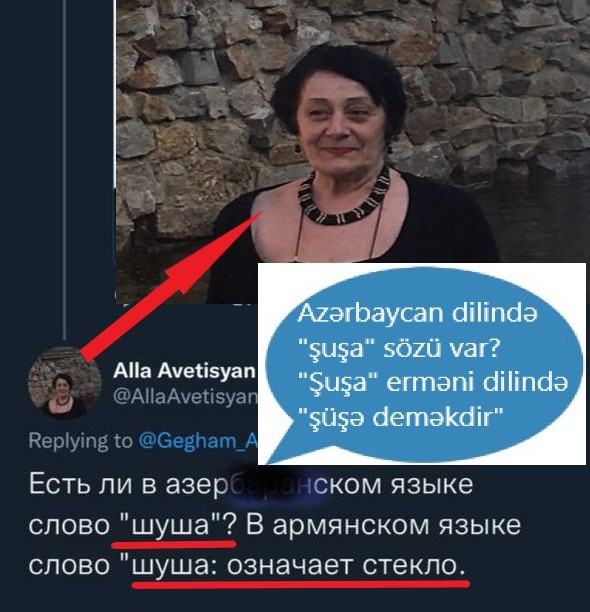
To clarify this issue, there is no need for long searches and research. You just need to see how the word “glass” sounds in Armenian. When translating both into Russian and into Azerbaijani, the same word is written (pronunciation is also given): apaki.
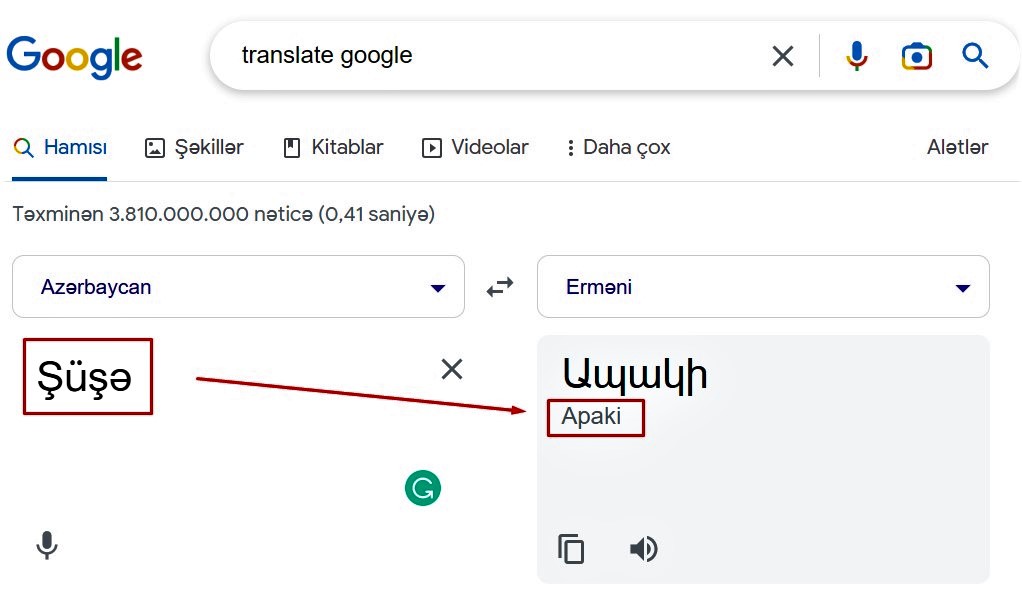
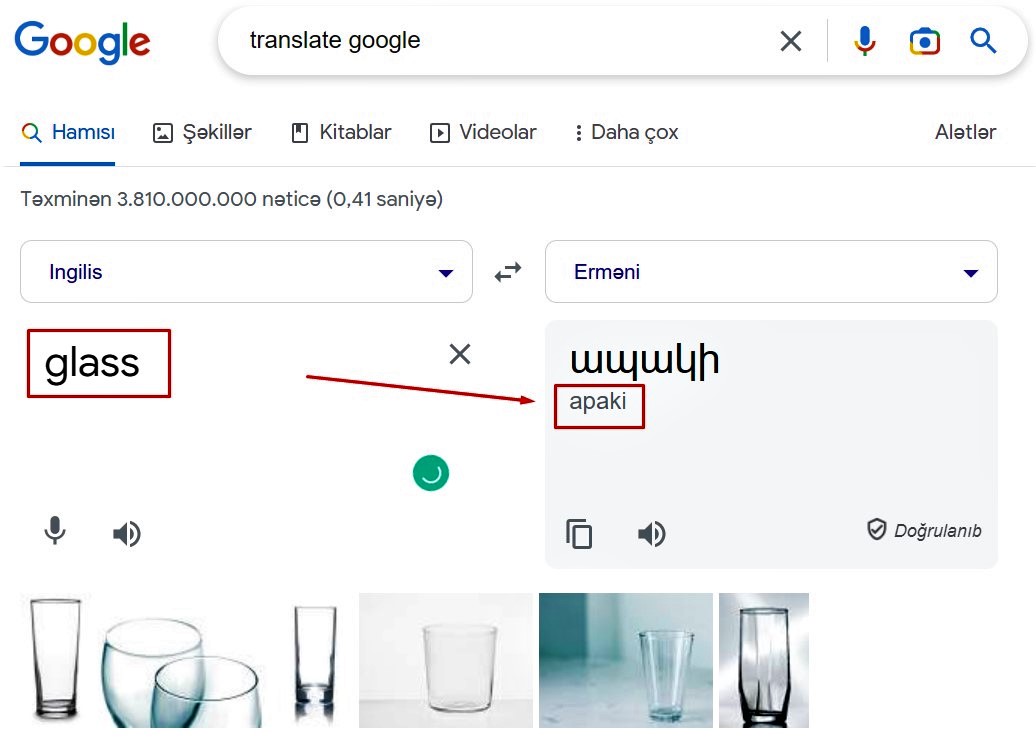
So, Shusha and glass!
Supporters of this etymology of the toponym ‘Shusha’, such as S. Bidlis "Sharafname", A. Dekhuda, R. Ali, E. Vasiliev, I. Rakshan in their studies note that impregnable fortresses in the Muslim East are called "Shusha fortresses". In areas inhabited by Turks and Muslims in Europe, Asia and Siberia, there are names of castles and cities bearing the name "Shusha", "Shishtar", "Shush". The Russian scientist E. Vasiliev, who lived in the 20th century, notes that impregnable fortresses in the countries of the Muslim East in the Middle Ages were called “Shusha galalary.” It is likely that at that time impregnable castles were built on rocky cliffs (shish gayalar), which made them impregnable.
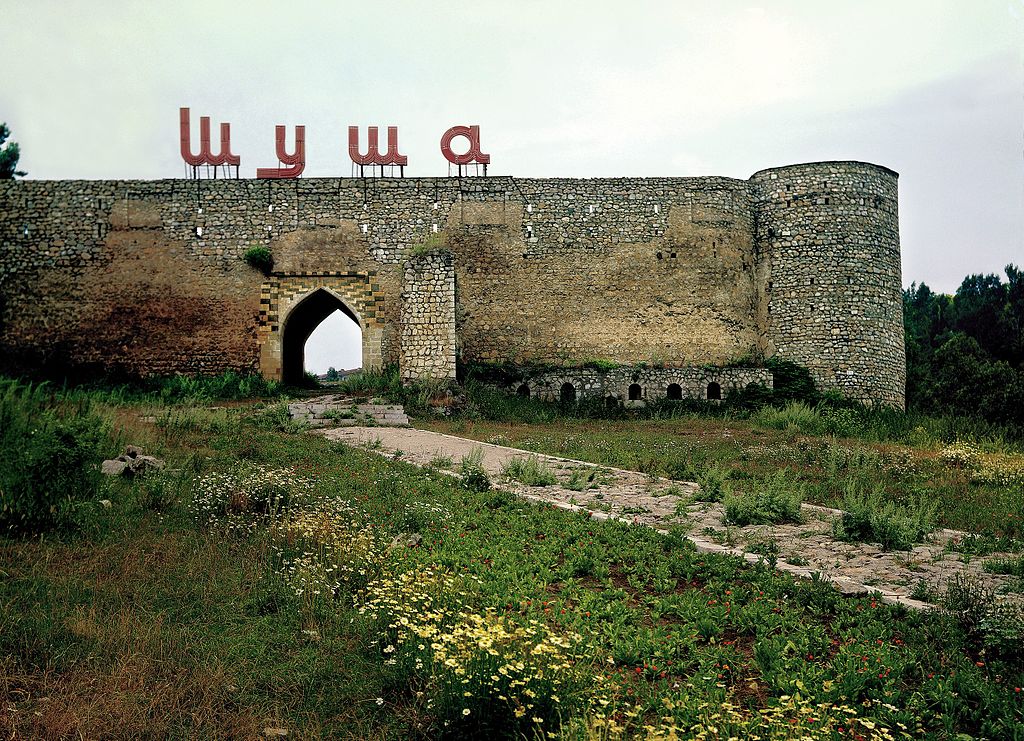
If we turn to folklore and folk legend about the etymology of the toponym Shusha, then the reason for such a name of the city is that the air of these places is pure, like crystal and glass. Over time, the word "glass" acquired the form of Shusha in the sense of "a city with glassy (clean) air."
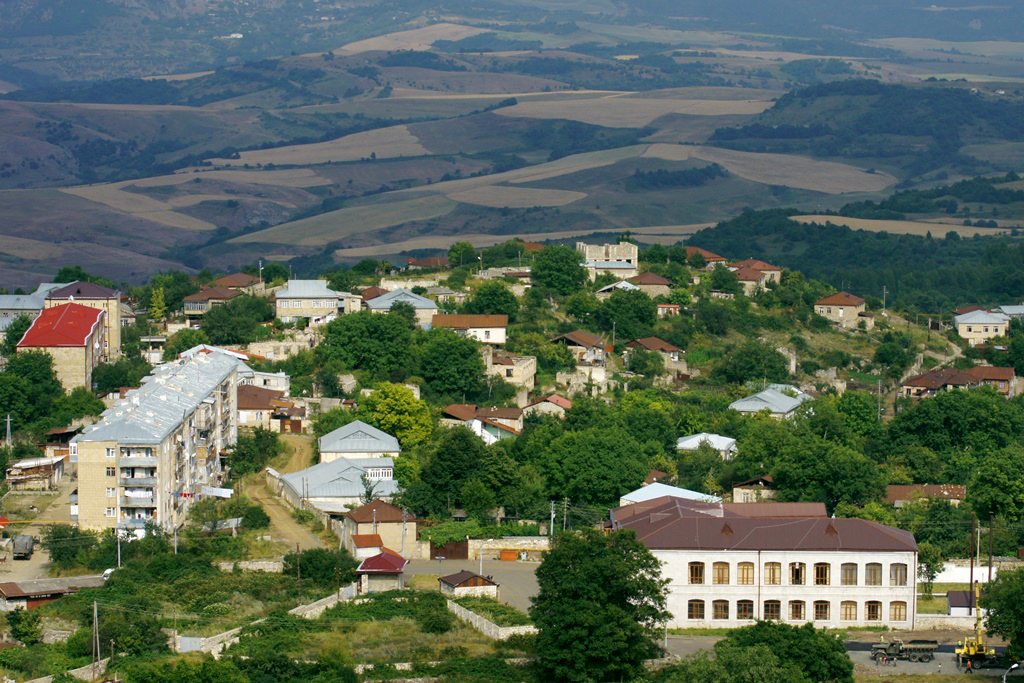
The foundation of the city of Shusha was laid by the ruler of Karabakh, Panahali Khan. So, in 1748, Panahali-bay went to Karabakh, laid the foundation of the Karabakh khanate and declared himself the khan of Karabakh. At that time, the population of the khanate consisted of the Javanshir, Iyirmi Dord, Otuz iki, Kabirli, Baharly and Ziyadoglular tribes. To protect the Karabakh khanate from attacks, Panahali Khan built the Bayat fortress in the Kabirli region in 1748, but decided to build a more reliable fortress to protect it from attacks and built the Shahbulag fortress, also called Tarnagul. Deciding to move the center of the khanate to a safer place, he began to look for a new place and in 1752 built the Shusha fortress.
Mirza Rahim Fana in his work "History of modern Karabakh" (XIX century) described in detail the process of building the city of Shusha. Also, referring to such authors as Mirza Jamal Javanshir Garabagi, Mirza Yusif Garabagi, Hasan Ikhfa Alizade, it can be noted that the foundation of the city of Shusha was laid by Panahali Khan. Previously, the city was called Panahabad, Gala, Shahri-Shise, Shise, etc. and finally was named Shusha.
Here is another reminder.
In April this year, Iranian journalist Salar Seyfoddini wrote a tweet about Shusha, in which he distorted the name of an ancient Azerbaijani city and committed a historical falsification. When we researched this article, we came across a twitter correspondence between Salar Seyfoddini and Anush Ghavalyan, a member of the separatist troll team temporarily residing in Karabakh.
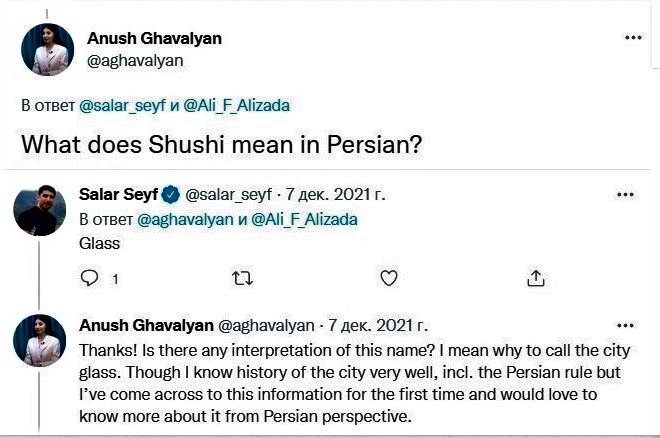
In the correspondence, Anush Ghavalyan asks Salar Seyfoddini what the word "Shusha" means in Persian. Salar Seyfoddini replies that it means "glass." However, like Armenian bloggers and journalists, Salar Seyfoddini also calls Shusha in the Armenian way - “shushi”.
Now one question remains. Alla Avetisyan, who lives in Canada, and people like her, wanted to expand the lexicon of the Armenian language with the Azerbaijani word, or, having realized that the propaganda of the false word "Shushi" was not successful, did she return to her usual profession of falsifiers?




















